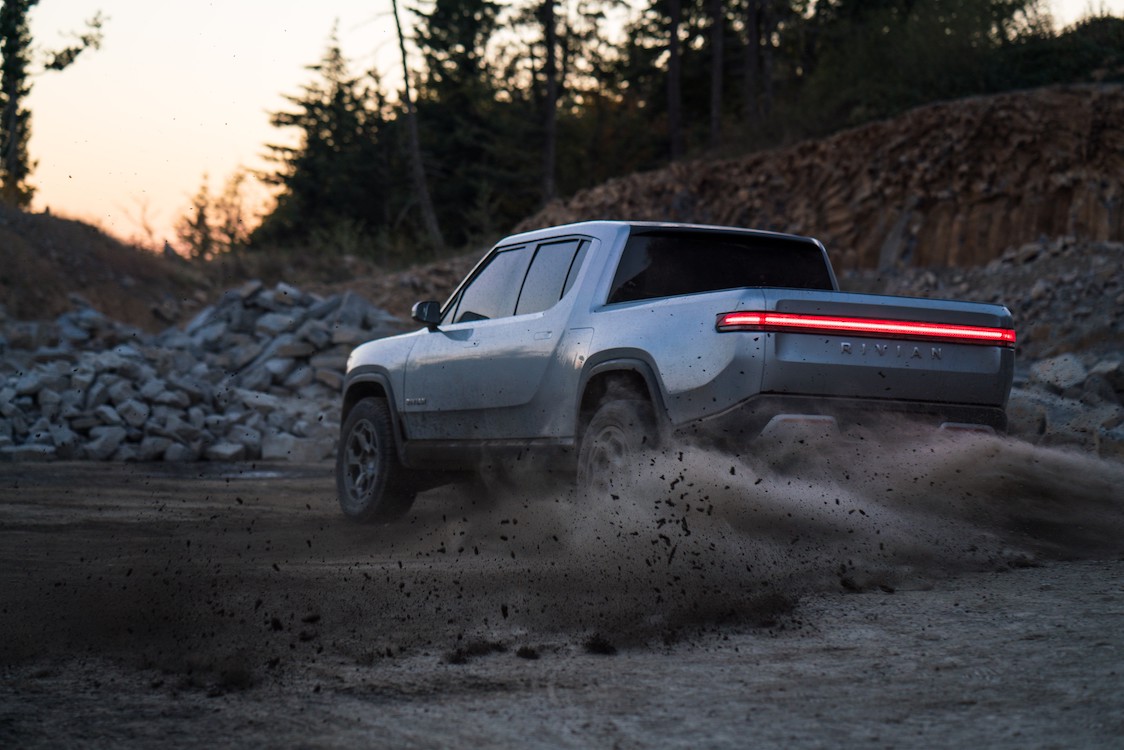Rivian’s electric trucks are filled with several unique features for the enjoyment of driving. In this article, we will be discussing a feature that is present on several other EV models but will come to Rivian EVs differently, self-driving.
The carmaker’s system of self-driving includes radars, ultrasonic sensors, high precision GPs, and a lidar as well. On a scale from 0-5, where 0 has no autonomy at all, Rivian trucks will find themselves at a level 3. According to the Society for Automotive Engineers (SAE), this level requires that the human driver inside the vehicle should be aware of the surroundings to take back control at any time. Based on this, the automaker will follow the next steps to determine if the driver is paying attention to the road:
- Connect, by vehicle, to a wireless device of the vehicle occupant.
- Receive, by vehicle, signal from a wireless device indicative of activity of the vehicle occupant, and processing the signal to determine the level of awareness of the vehicle occupant.
- Determine whether the level of awareness of the vehicle occupant satisfies a threshold.
- Generate, by vehicle, an alert based upon whether the level of awareness of the vehicle occupant satisfies the threshold.
Rivian will track the medical data from the driver via the devices connected to the car. This means that with any emergency or detection that the driver may not be fully ready to take the wheel, the vehicle will have an appropriate answer. It will also offer a series of touch screen prompts that ask for a response. If no reaction is detected, the vehicle will stop. The system can also call 911 if the reason for stopping is a medical emergency.
Here are some images of the patent application:
Oliver Jeromin, Rivian’s Associate Director of Self-Driving, shared some information on the tech:
“There are mobility companies that are working on Level 4, and they’re looking at it kind of from the top-down, coming from 4 or 5 for more fleet applications possibly… We want to get a feature into our customers hands sooner than possibly some of those other systems might be fully vetted.”
The director also commented on the fact that the system can really have autonomy:
“It’s really trying to determine the driver’s intention because if…you inadvertently give the steering input to the steering controller…the driver monitoring camera will see that you’re not looking at the road, and you also don’t have both hands on the wheel, (…) So, we’ll have to ignore that input from the human to understand that they’re not intending to change lanes. They’re actually just doing something else while the vehicle is in control.”
Here you can check the whole interview by Jeromin to TechCrunch:







